
High Sensitivity C-reactive protein (hs-CRP) Test
High Sensitivity C-reactive protein (hs-CRP) Test
A high-sensitivity C-reactive protein (hs-CRP) test determines the amount of C-reactive protein (CRP) in a blood sample. CRP is a protein produced by the liver. Normally, the blood contains low levels of C-reactive protein. The liver releases more CRP into your bloodstream when the body is exposed to infection. High hs-CRP levels may indicate an increased risk of heart attacks, heart diseases, and sometimes other inflammatory conditions. Healthcare providers use this test to screen the level of CRP in your blood and detect any diseases of the heart.
High sensitivity - CRP Test is also known as Cardiac CRP, hs-CRP, CRP for heart disease.
A hs-C-reactive protein test is done to determine the level of CRP in the blood. This test is used by healthcare providers to help diagnose and monitor various causes of heart diseases. Thus, getting your hs-CRP test is recommended to know the risk of developing cardiovascular diseases
What is a hs-CRP test used for?
A high sensitivity CRP test is used in the diagnosis of:
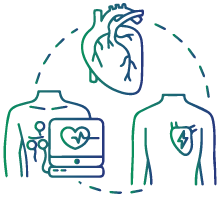
Heart attack
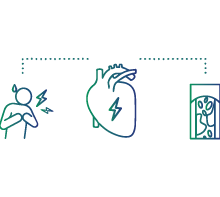
Myocardial infarction
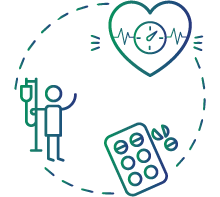
Peripheral cardiac disease
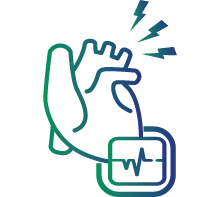
Sudden cardiac death
Who should get tested?
A high-sensitivity CRP test is recommended to be performed frequently for individuals if the following symptoms and risk factors are present:

Fever or chills

Chest pain
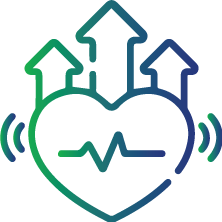
Increased heart rate

Rapid breathing
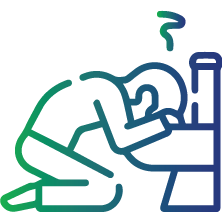
Nausea and vomiting

Being overweight or obese

Smoking

Skin infections
Preparation for test
No special preparation is required for the hs-CRP test. Some medications may have an impact on your test results. As a result, inform your healthcare provider about any supplements or medications you use. Do not discontinue any prescription medications without first consulting your healthcare provider.
Interpretation of results
High-sensitivity CRP-Interpretation of results in milligrams per litre
|
Range of CRP levels |
Inference |
|
0.5-1.0mg/L |
Low risk of coronary artery disease |
|
1-3mg/L |
Moderate risk of coronary artery disease |
|
>3 mg/L |
High risk of coronary artery disease |
Deviation from normal levels indicates the following:
· Hs-CRP test is used by healthcare providers to help diagnose and monitor various causes of coronary heart diseases.
· Hs-CRP levels between 0.5 and 1.0mg/L are indicators of good health.
· Hs-CRP levels between 1 and 3mg/L indicate the initiation of heart tissue damage.
· Hs-CRP levels >3mg/L indicate damage to the heart tissue.
FAQs
What is the significance of the hs-CRP test?
Hs-CRP test determines the level of CRP that is produced in your body. The screening, monitoring, diagnosis, and follow-up of heart disease, as well as other medical conditions, can all be done with the hs-CRP test. Elevated hs-CRP level may predict the risk of heart attacks up to 7-8 years in advance
What factors might affect my hs-CRP test results?
Factors like obesity, lack of exercise, cigarette smoking, minor injuries, and conditions like pregnancy, and diabetes can raise your hs-CRP levels slightly above normal. Also, certain medications like nonsteroidal anti-inflammatory drugs (NSAIDs), aspirin, and steroids can lower your CRP levels below normal. So, it is recommended that consult your healthcare provider before getting the hs- CRP test
How is the hs-CRP test performed?
During this blood test, a healthcare professional will take a small amount of blood from a vein in your arm using a small needle, which is collected into a test tube or vial. This usually takes less than five minutes
What are the risks associated with the hs-CRP test?
There are no known risks. During a blood test, one may experience minor pain or bruising where the needle was inserted, but most symptoms will subside quickly
Does a high sensitivity CRP level indicate that I am going to have a heart attack?
The high-sensitivity CRP can only predict the risk of a heart attack. When the body is experiencing an infection or inflammation, CRP levels rise. Testing is usually repeated three to four weeks after the initial result if it is elevated. This is done to rule out any minor infections or inflammation

